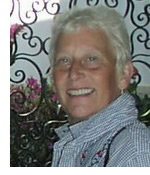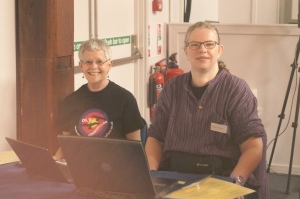You will be familiar with the adage ‘a picture paints a thousand words’ but I wonder how many of you trust yourselves to let the picture do the talking when working with online clients.
For some time now I have been toying with the idea of using images both paintings and photographs rather than using the language of metaphors to express thoughts and ideas which may be helpful to clients.
With the advent of smartphones it is becoming commonplace for people to take pictures of their experiences and to share them instantly with friends and family with little or no explanation and for the pictures to hold meaning for those receiving them, so I ask myself what stops me from making greater use of them in my work?
During OLT’s General course students are asked to choose a metaphor or image of themselves as an online counsellor and because I choose to include an image to illustrate my written description students have often followed suit and their choice of images have so accurately reflected their written word that it has demonstrated for me time and again how powerful pictures can be in transmitting not only ideas but also feelings.
I have chosen to focus on this theme now because I want to take this opportunity to wish you all a Merry Christmas and all the best for 2016 and to share with you the Christmas card I have designed for 2015.
Every year we each send and receive many cards and I often wonder how much time is given to reflecting on the images and the words contained in them. I guess all of us know those for whom sending and receiving cards is important and those for whom it is not.
If you have time take a few minutes to look at my card and ask yourself what meaning this picture has for you. Perhaps all you see is a wintery scene with three bells and a Christmas message.

For me it holds so much more. The scene is actually the view from my garden and the bell shapes have been cut out from a photo I took of a stained glass window you may recognise if you have visited Ely Cathedral. (I wonder if knowing the background of the picture makes a difference to the way you now look at it) Perhaps you have become a little curious and are wondering what the significance may be.
It has become so easy to lose the spiritual meaning of Christmas. By including the three bells and the stained glass images taken from Ely Cathedral I am able to acknowledge in my own way why this time of year is important to me, whilst at the same time allowing those who receive the card the freedom to read into the greeting what is important for them.
So I will leave you with this thought. Will the recipients notice the graphics or will it be the words that matter, perhaps neither? What may matter to them is that they have been remembered and are being thought about and how life changing that can be!
With heartfelt wishes to you all and to those for whom you care,
Gill Webb





